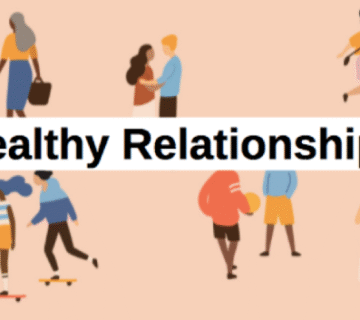Relationships profoundly influence emotional well-being, happiness, and personal growth. Yet, it can sometimes be difficult to gauge if a relationship is truly healthy, especially when emotions complicate objectivity. Recognizing the signs of a healthy relationship alongside the warning signs or red flags can empower individuals to nurture fulfilling connections or make important decisions to protect their well-being.
This article offers expert guidance on how to identify healthy relationship characteristics and recognize red flags, equipping readers with knowledge to foster or evaluate their partnerships wisely.
Characteristics of a Healthy Relationship
A healthy relationship provides both partners with a sense of fulfillment, safety, and respect. It contributes positively to emotional health and personal growth. Key signs include:
Open and Honest Communication
Partners feel safe to express feelings, share concerns, and discuss problems without fear of judgment or reprisal. Communication is clear, respectful, and frequent.
Mutual Respect and Support
Both individuals honor each other’s opinions, boundaries, and values. They encourage each other’s ambitions and offer support during challenges.
Trust and Reliability
Partners trust each other to be honest, keep promises, and be dependable. Emotional and physical safety is prioritized.
Equality and Fairness
Responsibilities, decision-making, and effort are balanced. Both partners contribute and feel valued without power imbalances.
Emotional and Physical Intimacy
There is genuine affection, connection, and shared vulnerability. Physical affection aligns with mutual comfort and desire.
Independence and Space
Healthy relationships respect individuality. Each partner maintains friendships, hobbies, and personal growth outside the relationship.
Constructive Conflict Resolution
Disagreements are approached with respect and a focus on solutions rather than blame. Arguments do not escalate into insults or withdrawal.
Common Red Flags in Relationships
Recognizing red flags early can prevent prolonged emotional harm and unhealthy patterns. Red flags signal behaviors or dynamics that undermine respect, safety, and connection.
Controlling or Manipulative Behavior
Attempts to control another’s actions, beliefs, or social interactions indicate imbalance and disregard for autonomy.
For example: insisting on knowing constant whereabouts, limiting friendships, or coercing decisions.
Disrespect for Boundaries
Ignoring stated limits around personal space, emotional needs, or intimacy disrespects individuality and safety.
Repeated pressure or guilt-tripping undermines healthy boundaries.
Lack of Trust or Dishonesty
Frequent lies, secrecy, or suspicion erode foundation and intimacy.
Trust issues cause anxiety, insecurity, and communication breakdown.
Emotional Abuse and Gaslighting
Behavior that invalidates, belittles, or manipulates feelings harms psychological well-being.
Gaslighting involves denying reality to confuse or destabilize a partner.
Frequent or Escalating Violence
Any physical aggression or threats is a direct danger signal requiring immediate intervention.
Neglect and Indifference
A partner who consistently ignores emotional needs or dismisses feelings fosters loneliness and disconnection.
Fear of Expression or Disagreement
If expressing honest opinions or disagreeing leads to contempt, rage, or withdrawal, emotional safety is compromised.
How to Reflect and Take Action
Evaluating your relationship requires honesty and self-compassion.
-
Reflect on how you feel around your partner. Are you secure, heard, and respected? Or anxious, dismissed, and hurt?
-
Pay attention to repeated patterns rather than isolated incidents.
-
Discuss concerns with trusted friends, family, or professionals for perspective.
-
If red flags dominate, consider boundaries, counseling, or safely exiting the relationship.
Read More: 10 Steps to Have a Healthy Relationship: Expert Advice for Lasting Love
Summary
Healthy relationship nourish and protect emotional well-being through respectful communication, trust, equality, and intimacy. Red flags such as control, dishonesty, emotional abuse, or neglect signal harm.








No comment